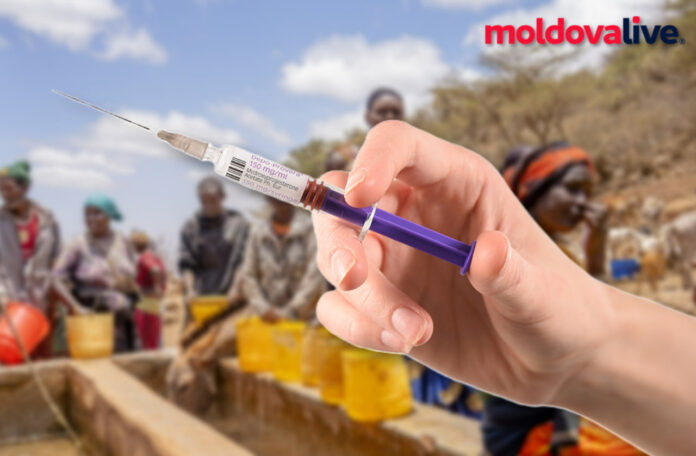The National Agency for Public Health (ANSP) announced the first case of babesiosis (a parasitic disease transmitted by ticks) in the Republic of Moldova. The ANSP’s National Reference Laboratory for Healthcare-Associated Infections, Antimicrobial Resistance, Bacterial Infections, and Parasitic Diseases confirmed the case in a woman from Ireland temporarily residing in Moldova.
According to ANSP, the woman spent two weeks in an African country in January.
The 38-year-old woman showed symptoms such as fever, chills, general weakness, headache, and muscle pain. The epidemiological investigation revealed that she had spent two weeks in an African country in January. Babesiosis can occur without symptoms, and when symptoms are present, they are non-specific, requiring the exclusion of other causes.
Because the woman showed symptoms typical of malaria and had visited a malaria-endemic country, doctors initially diagnosed her with malaria. They sent blood samples to ANSP’s laboratory to confirm the primary diagnosis. The investigation revealed that the woman had babesiosis. She is currently receiving treatment, and her condition is satisfactory, according to ANSP specialists.
FOR THE MOST IMPORTANT NEWS, FOLLOW US ON TWITTER!
The disease is a zoonosis common to animals but can affect humans as well. Babesia parasites attack red blood cells and transmit through ticks. Most babesiosis cases have occurred in the United States, Europe, Asia, and Australia.
Doctors diagnose babesiosis by examining blood smears to detect the Babesia parasite in red blood cells. The parasite looks very similar to Plasmodium falciparum, leading to misdiagnosis as tropical malaria. Doctors may also use serological and molecular tests for diagnosis.
The disease typically shows symptoms weeks or months after infection, including fever, fatigue, chills, sweating, headache, muscle pain, joint pain, and loss of appetite. Treatment involves a combination of antiprotozoal drugs, antibiotics, and antimalarial medications.
Experts recommend the following preventive measures:
- Avoid exposure to ticks: These insects typically live in areas with abundant vegetation, such as forests, tall grass, and bushes. If you live in or visit these areas, stay on well-marked paths and avoid dense vegetation.
- Wear protective clothing and use tick repellents: If you cannot avoid such areas, wear long pants and long-sleeved shirts and apply insect repellent.
- Carefully check your body after being outdoors: Ticks are difficult to spot, so inspect areas like your scalp, neck, armpits, groin, and behind the knees. Ask someone else for help with hard-to-reach areas.
- Remove ticks correctly and promptly: If you find a tick on your body, remove it as soon as possible. Use a sharp-tipped tweezer to grasp the tick as close to the skin as possible and pull it straight up. After removal, disinfect the bite area with alcohol.
ANSP advises that if you return from tropical regions and show signs of illness, consult a doctor and avoid self-treatment.


